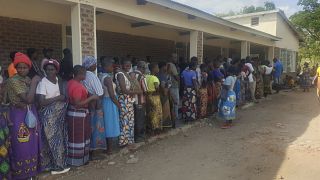Malawi
When drones first came into the aviation industry, they were and have been mainly used for surveillance and assessments of disasters.
In Malawi, it is and will be the first time the drone technology is used in the continent to conduct health research in improving HIV services.
The country started testing the use of the Unmanned Aerial Vehicles (UAVs) to try and cut down on the time it takes to test for HIV in infants living in rural areas.
The research, being run by the UN children’s agency (UNICEF) is currently using simulated samples.
The first successful test flight recently completed a 10 kilometer route, travelling from a community health centre to a laboratory of Kamuzu Central Hospital located in the capital Lilongwe.
According to Judith Sherman, Head of UNICEF’s HIV and Aids programme in Malawi, there are many delays in the continuum of getting HIV positive children on treatment.
“They need to come in early for testing, ideally before 2 months, between 6 and 8 weeks, their tests and the dry blood spots need to get from the health facilities to one of the 8 laboratories nationwide,” she said.
While progress has been made, and today 90 percent of pregnant women know their HIV status, there is still a drop off with testing and treating babies and children.
“It’s a very painful experience for me because as it is, I don’t know whether my child got the disease from me or if he’s okay, so the waiting is painful,” said Agnes, a mother who tested positive for HIV.
Currently it can take almost two months to get samples from a healthcare facility to an equipped lab and for the results to be returned.
40,000 children in Malawi were born to HIV positive mothers according to UNICEF in 2014 and an estimated one million Malawians were living with HIV in 2013 of which 48,000 died from HIV-related illnesses in the same year.
Every year around 10,000 children die of the virus, a number the UNICEF says could be tackled with early diagnosis and quality medical care. Malawi has a national HIV prevalence rate of 10 percent – still one of the highest in the world.












01:29
US medication safety agency approves biannual preventive HIV shot
01:06
Haiti health officials meet to discuss shortage of HIV/AIDS medication
01:46
Haiti running out of HIV medication due to USAID funding cuts
Go to video
Tanzania bans agricultural imports from South Africa and Malawi
01:08
Malawi-Zambia communities threaten legal action over elephant relocation
Go to video
HIV clinic for Johannesburg's gay community closes after aid freeze